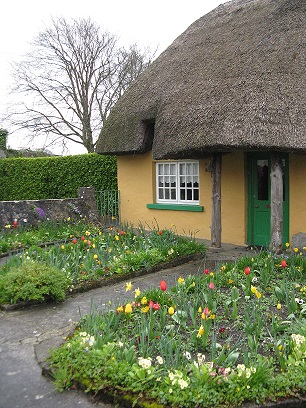Orientaciones para el alumnado
Orientaciones
 |
 |
 |
|
Imágenesde creación propia |
Estimado/a alumno/a:
Esperamos que hayas aprendido todos los contenidos de la segunda unidad y seas consciente del progreso que has hecho en este tiempo con la lengua inglesa. Esta tercera unidad trata de temas tan variados como las bodas y las celebraciones, las vacaciones, los tipos de alojamiento, y el tiempo.
|
|
Comprensión de textos orales:
Escucharás la lengua hablada con diferentes acentos, oirás textos auténticos y conversaciones de la vida diaria. Realizarás tareas variadas de elección múltiple, rellenar huecos, verdadero o falso, unir conceptos, etc.
Comprensión de textos escritos: Las tareas de lectura te ayudarán a entender las estructuras y a mejorar tu uso del vocabulario. Aprenderás a desarrollar estrategias para la comprensión de textos.
Coproducción de textos orales: Producirás textos orales, y también mantendrás conversaciones.
Coproducción de textos escritos: Aprenderás a escribir textos de cierta longitud, a puntuarlos correctamente, a usar una estructura adecuada, y a conectar las diferentes partes en el texto por medio de las partículas apropiadas.
Mediación: explicarás cómo generalmente se celebra una boda y resumirás una canción.
En el siglo XXI, las nuevas tecnologías están más que nunca presentes en nuestra vida diaria, y es a través de ellas que vas a continuar tu aprendizaje.
Esperamos que disfrutes de este viaje por la lengua inglesa y las culturas que la hablan.
Lo que vas a aprender
Tema 1
In this lesson you will:
- learn vocabulary about a wedding ceremony and reception, invitations and dating.
- use expressions to say what might happen in the future and how to accept or not an invitation.
- learn how to use the Conditional sentences type 1.
- say the contracted forms of will and will not (I'll; they'll; won't) correctly.
- learn about some ideas on celebrating a wedding and religious ceremonies and on dating.
Tema 2
In this lesson you will:
- learn the use of going to and present continuous to express future intentions and plans
- learn how to use present simple to express timetables
- learn the verb used to to express past habits and states
- learn how to ask for and give directions
- learn how to ask for, reject and accept suggestions
- learn how to write an informal e-mail
- learn different lexis related to travel and the different meanings of the verb get
- revise the use of time prepositions (in, on, at)
- learn about the Orkneys, famous railway stations and left-hand drive
- practise relating signs to their meaning
- listen to a variety of audios and read different texts of different lengths for gist and intensive comprehension
Tema 3
In this lesson you will:
- learn vocabulary related to different types of accommodations, hotel facilities, and road signs.
- practise conversational language, conditional would and would + like / hate / enjoy / love.
- learn ways to use the room service, how to fill in a hotel registration form, ckeck in and out, different types of documents and how to behave in formal situations in a reception desk.
- learn about the different sounds of the vowel "u".
Tema 4
In this lesson you will:
- see vocabulary related to holidays, adverbs of grade, weather and different tenses to express future time.
- learn how to use the future will/ will not (won't), adverbs ending in -ly, modals (may, can, can't, might)
- learn what to do in a national bank holiday or public holiday, how to understand and interpret the weather forecast, how to describe actions and environment.
- practise the different sounds of the third person singular "o" and "eu" "w".
Organización de los contenidos
Los contenidos están estructurados en 6 unidades didácticas y éstas se construyen con los siguientes elementos básicos:
- Cada unidad incluye un esquema conceptual y cada tema un resumen, útiles para reforzar lo estudiado.
- El elemento Top Tips recoge algunas ideas claves y fundamentales de cada apartado. Estos puntos importantes vienen desglosados con diferentes iconos morados correspondientes a los distintos aspectos lingüísticos . (Vocabulario, gramática, funciones comunicativas, fonética, escuchar)
- Los temas contienen ejercicios de autoevaluación (Do it yourself) y actividades de lectura (Reading activity) para desarrollar y aplicar los conocimientos adquiridos. También hay tareas de diferentes tipologías (orales, escritas y de mediación) con sus diferentes iconos en color azul.
- También se incluyen algunos elementos de motivación, que no son exigibles: Para saber más (Moving on), que suelen contener enlaces externos; Curiosidad (Focus on), que presenta aspectos interesantes o anecdóticos y apuntes culturales (Culture counts)
Estos son los iconos correspondientes a los elementos mencionados.
| Top tips | Listen | Grammar | Phonetics | Vocabulary | Communicative functions |
| Do it yourself |
Reading activity |
Write | Written coproduction | Oral expression | Oral coproduction | Speak | Mediation |
| Moving on | Focus on | Culture counts |
